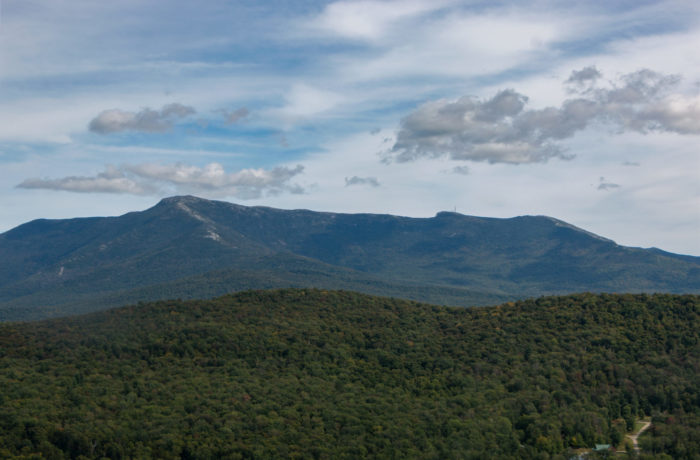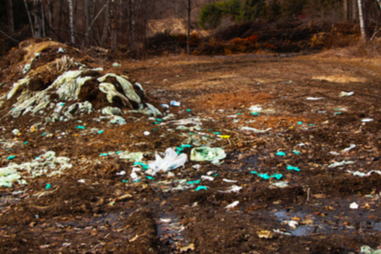By Corinne Lyndes
A collection of new environmental bills proposed in Vermont’s legislature will undergo debate beginning in January.
The state, long recognized for its stringent environmental protections,
is facing new challenges due to concerns over climate change and fossil fuel consumption. Advocates of the proposed legislation want the state to conserve natural resources by balancing environmental protection with economic growth, property rights, public health and energy production.
The bills mandate 90 percent renewable energy, a carbon pricing tax, banning of special interest corporate campaign contributions, required well testing and banning the sale of children’s products produced with toxic chemicals. The overall goal of the legislative effort is to pass forward-thinking environmental standards for future generations by reducing carbon pollution. Opponents say a carbon tax would hurt the state’s economy by increasing an already high tax burden and do little to impact global warming on a worldwide scale.
“Ninety percent renewable energy is a no-brainer because it’s both economical for Vermont and a great environmental decision,” said Laura Stroup, assistant professor of Environmental Studies at St. Michael’s College. “With the loss of the Vermont Yankee power plant, we don’t produce a lot of our own energy anymore.” The nuclear power plant was shut down in 2014, forcing the state to find alternative energy sources.
As this problem of limited resources is becoming more prevalent both locally and nationally, students at St. Michael’s are eager to learn about environmental issues, Stroup said. “The Environmental Studies program has grown miraculously in six years, from nonexistent to now one of the largest majors on campus, because I think students inherently have this interest in environmental issues.”
According to the Vermont Public Interest Research Group, a public advocacy group that supports the legislative proposals, annually Vermont spends over a billion dollars from its local economy on fossil fuels. Efficiency Vermont, the nation’s first energy efficiency utility, cites figures showing many Vermonters are moving away from carbon-produced energy because of the cost and environmental impact and more people are making the switch to renewable energy, which has become increasingly cost-efficient.
Supporters of the bills say they would help maintain Vermont’s reputation as a state setting the national standard for environmental protection.
However, lawmakers realize the legislation faces opposition. Sarah Copeland-Hanzas (D) of Bradford said supporters need to prove the proposals will live up to their intended purpose.
“It’s not a done deal because there are people who will say we shouldn’t pass this aspirational goal unless we are at the same time passing legislation that will help us meet that goal,” Copeland-Hanzas said.
Another factor is whether Republican Governor, Phil Scott, will support the largely Democratic effort. Copeland-Hanzas acknowledges some compromise is inevitable.
“A bill may move because it’s a good idea, but it’s not going to be a slam dunk; my feeling is Vermont is not on track to meet its renewable energy goals, so we need to make policy changes and push institutions.”
Nick Wahlers, Vermont Public Interest Research Group’s field director, said that
Energy Independent Vermont is building coalition with 500 local businesses already signed on, as well as support from low income advocacy groups and faith groups. Although Governor Phil Scott said that he wouldn’t support carbon tax, Wahlers said that EIV’s goal is to have the Governor’s climate action commission hear enough about it that they will have to recommend it to him.
Wahlers also mentioned the “bottle bill,” which he says “continues to build every year, and it’s gaining a lot of traction, especially in an age where we’re looking at potential gaps in the budget and how we can fill those gaps.” The bottle bill deals with bottle returns in the state, which brings in $1.4 to 4 million annually. The bill proposes that instead of giving the money back to the big companies, such as Coca-Cola, the state should keep it and decide what to do with it. “When you break it down, it doesn’t have to be a right-wing, left-wing issue, we just need to find a fiscally conservative policy that will help us deal with the gap in the budget,” Wahlers said.
Both supporters and opponents of the bills are preparing for the 2018 legislative session, which begins January 2, and is anticipated to wrap up in the spring. While the issue will play out in the Statehouse during the upcoming legislative session, it won’t be the end of debate. Veteran statehouse reporter Anne Galloway, founder of the popular news website Vermont Digger, told the Defender the carbon tax debate will play a large role in future elections because of its potential effect on the state economy and its ability to create and maintain jobs.


